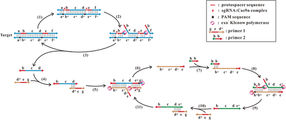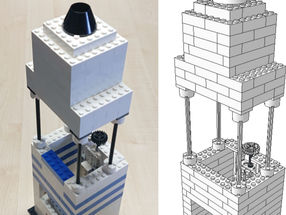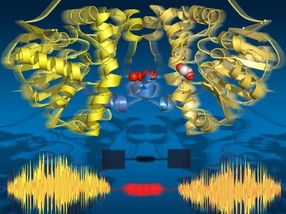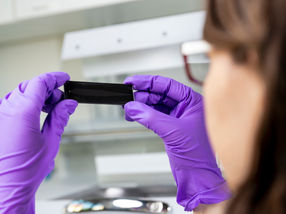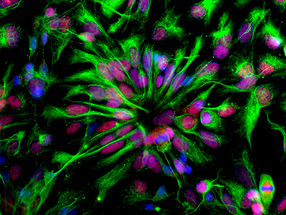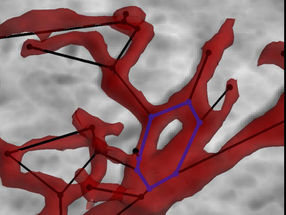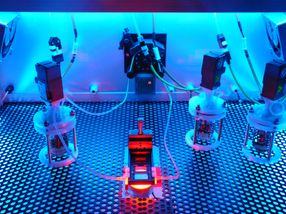Novel method for rapid detection of antibiotic resistance
Respiratory, urinary tract, wound infections, and sepsis: the list of sites in which severe and life-threatening diseases manifest as a result of multidrug resistant microorganisms is long. The best option is an antibiotic treatment targeted specifically to the detected pathogen. However, the identification of microorganisms and their resistances to antibiotics is time consuming. A research team from the Institute of Medical Microbiology, University of Münster, Germany, has developed a method that considerably accelerates resistance testing. Supported by the German Federal Ministry of Education and Research (BMBF), and in cooperation with an industrial partner, the research team is currently developing this method. Soon to be on the market, it will be readily available for patient management.
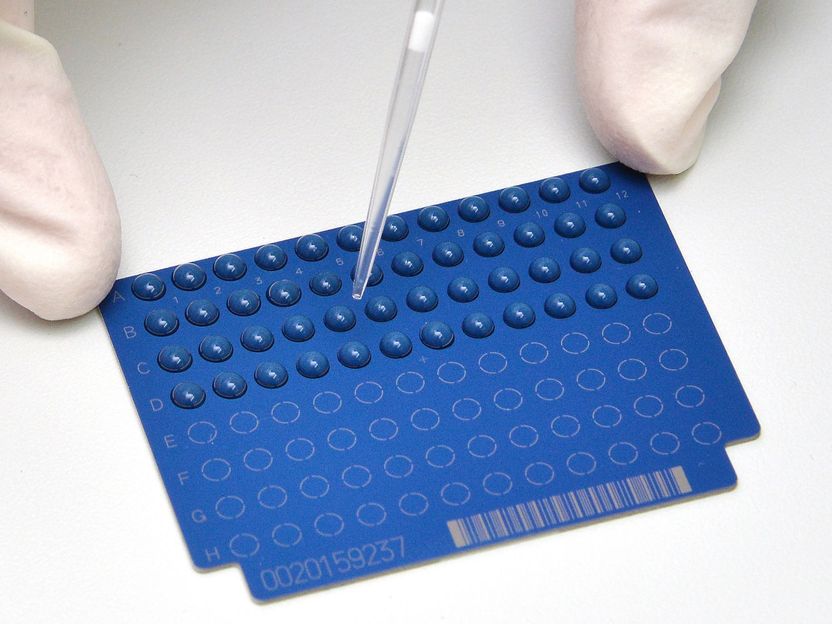
Symbolic picture: Application of microdroplets for rapid determination of resistance using MALDI-TOF mass spectrometry.
FZ / E. Deiters-Keul
The novel method proposed by project leaders Evgeny A. Idelevich, M.D. and Karsten Becker, M.D. is based on MALDI-TOF mass spectrometry, which was recently introduced for microbial identification. Prof. Becker observed, “We also need new techniques for more expedient detection of acquired antibiotic resistance”. Currently applied methods require more than 24 hours, as they are dependent on bacterial growth. The innovative method from Münster would allow earlier optimization of patient treatment and the prompt initiation of infection control measures, crucial for the protection of hospital patients from a spread of multidrug resistant bacteria.
Currently, many physicians administer broad-spectrum antibiotics to swiftly provide a reliable medicine. Unfortunately, microorganisms can become resistant due to this very treatment. The shift to a more targeted antibiotic therapy reduces antibiotic selection pressure and thus, the emergence of multiresistant bacteria.
Dr. Idelevich added, “The application of MALDI-TOF mass spectrometry for resistance testing was attractive to our research due to its expediency and high accuracy. It can also be optimally combined with the identification process, rendering it cost-efficient”. Based on this technology, both researchers have developed a rapid and universal method for resistance determination which is independent from the underlying resistance mechanisms and can be performed simultaneously for multiple antibiotics. Through the license agreement with Bruker Daltonik (Bremen, Germany), a pioneer in mass spectrometry technologies, this innovative method can now be developed further and optimized for the diagnostic market.
Prof. Becker commented, “We hope that our method will be available for routine use in clinical laboratories in 2-3 years”. Here in Münster, we are particularly proud of the MALDI-TOF mass spectrometry project, as the MALDI-TOF technology was greatly influenced in the 1980s by Münster scientists. At that time, the groundwork was established for today’s microbial identification. Currently, thousands of laboratories worldwide already use a MALDI-TOF instrument. This sets optimal preconditions for the wide-spread and cost-efficient implementation of our method.”
The cooperation between academic and industrial institutions in Münster and Bremen will be supported by the BMBF for an additional three years; a grant totaling more than 900,000 Euros was awarded to the academic and industrial partners.
Other news from the department science
Most read news
More news from our other portals
See the theme worlds for related content
Topic World Spectroscopy
Investigation with spectroscopy gives us unique insights into the composition and structure of materials. From UV-Vis spectroscopy to infrared and Raman spectroscopy to fluorescence and atomic absorption spectroscopy, spectroscopy offers us a wide range of analytical techniques to precisely characterize substances. Immerse yourself in the fascinating world of spectroscopy!

Topic World Spectroscopy
Investigation with spectroscopy gives us unique insights into the composition and structure of materials. From UV-Vis spectroscopy to infrared and Raman spectroscopy to fluorescence and atomic absorption spectroscopy, spectroscopy offers us a wide range of analytical techniques to precisely characterize substances. Immerse yourself in the fascinating world of spectroscopy!
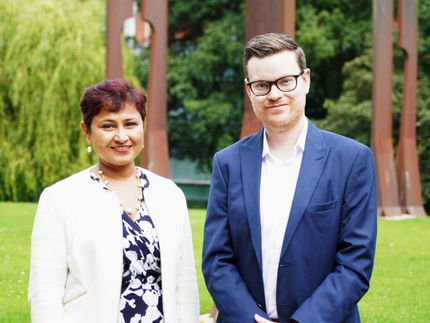



















![[Fe]-hydrogenase catalysis visualized using para-hydrogen-enhanced nuclear magnetic resonance spectroscopy](https://img.chemie.de/Portal/News/675fd46b9b54f_sBuG8s4sS.png?tr=w-712,h-534,cm-extract,x-0,y-16:n-xl)

